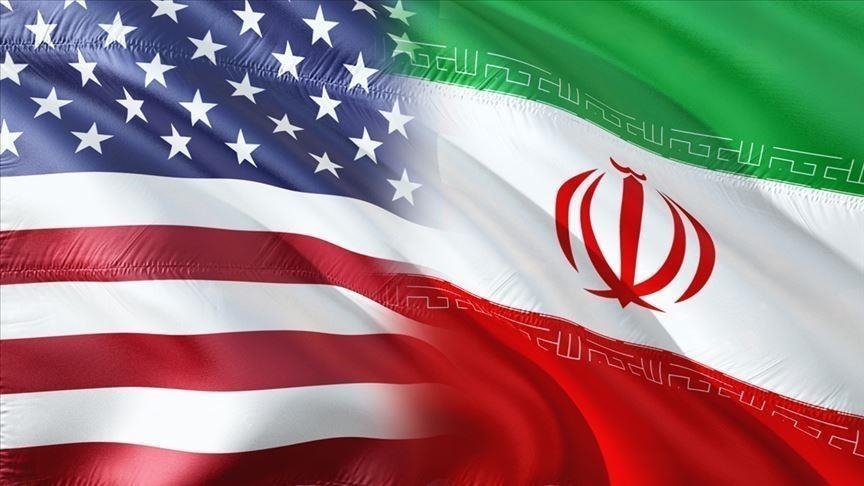
TEHRAN, Iran
Less than six weeks into his term, US President Joe Biden appears to have embraced a radically different approach to Iran and the Middle East than what his campaign speeches suggested.
From dragging his feet on rejoining the 2015 nuclear deal with Iran, to ordering a military strike targeting Iran-backed militias in Syria, the Biden administration has already ruffled a few feathers in Tehran.
Iran’s Foreign Ministry spokesman Saeed Khatibzadeh made his country’s exasperation known on Monday, suggesting that some moves by Biden were “worse” than his predecessor Donald Trump, who in 2018 launched the “maximum pressure campaign” against Tehran.
“Up to now, Biden's security policy regarding the Middle East, as compared to Trump's policy, has been one more defined by continuity than change,” Ali Ahmadi, a foreign policy analyst with focus on Iran-US relations, told Anadolu Agency.
Biden’s reluctance to rejoin the 2015 nuclear pact as a precursor to de-escalation of tensions, Ahmadi says, has made Iranian officials "very suspicious" and implies that there is a "strategic calculation that Biden is not being honest about."
Trump’s policy
The continuation of Trump's Iran policy by Biden so far has not gone down well with Tehran, which expected a different approach from the new US administration.
The US strike carried out in the wee hours of Friday morning in Syria-Iraq border region, the first authorized by Biden since taking office, reportedly killed one militia fighter and injured several others.
Iran condemned the attack, terming it “illegal aggression” and warning that it could “exacerbate military conflict and further destabilize the region”.
Abas Aslani, a journalist and policy analyst, said the strike indicates that the Biden administration's policy isn't much different from Trump's.
"The Biden administration seems to be more leaning toward American presence in the region," he told Anadolu Agency.
"The recent strike and the tendency to maintain military presence in several parts of the region can provoke tensions and decrease the chance of de-escalation."
Javad Heirannia, Director at the Scientific Research and Middle East Strategic Studies Center, said the attack was aimed to show that the US will “act hard to protect its interests in the region”.
“Biden wants to show that while he seeks to resolve the Iranian nuclear issue through diplomacy, he will also react strongly to any Iranian behavior in the region that threatens US interests,” he said, referring to a series of attacks on US forces in Iraq.
The attacks have intensified since the assassination of Iran’s top military commander Qasem Soleimani in a US airstrike in January last year. US officials have often blamed the attacks on Iran-allied groups inside Iraq. Tehran, however, has rejected the claims.
Regional activities
Heirannia said Iran’s nuclear issue is tied to its regional issues, as Tehran rejected calls for linking the revival of the 2015 to its missile program.
“The way out of this situation is that while focusing on resolving nuclear issue, regional issues should also be resolved within the framework of a regional dialogue,” he said, while asserting that Iran is unlikely to negotiate if it feels the balance of power will be to its detriment.
The Iranian government, while open to talks with the West on its nuclear program, has categorically ruled out any negotiations on its missile program and regional activities.
On the other hand, the new US administration finds itself in a quandary with pressure from its key regional allies, including Israel and Saudi Arabia, to contain Iran's influence in the region.
Political naivety
Some, however, are of the view that Biden will not follow his predecessor’s policy on Iran, a line of thinking they term “political naivety”.
“The recent US military strike in Syria should be analyzed against the backdrop of missile attacks in Erbil and within the framework of Biden’s new Middle Eastern policy,” Sadrodin Moosavi, a senior journalist and analyst, told Anadolu Agency.
He said the new US president is expected to introduce a “new Middle Eastern foreign policy” under which Washington will “contain [Saudi Crown Prince] Mohammad Bin Salman’s ambitions” and simultaneously make a “balance between Iran and Saudi Arabia”.
“As a matter of fact, both Iran and the US are keen on reviving the nuclear deal, but both sides are moving ahead cautiously to take more but give fewer in the process of give and take,” Moosavi said.
What has apparently complicated matters further is Iran's recent measure of stopping implementation of the additional protocol to the Non-Proliferation Treaty (NPT), which limits the UN nuclear watchdog's access to Iranian nuclear sites.
The US is reportedly pushing an anti-Iran resolution at the International Atomic Energy Agency (IAEA) governors meeting in Vienna this week, which has drawn strong reactions from Tehran.
Foreign Minister Javad Zarif on Monday warned Washington and its European allies against adopting the resolution, saying Iran has provided "necessary explanations" about recent measures to the UN watchdog.
"We hope that reason will prevail, and if that does not happen, we have solutions," Zarif said, without specifying Iran's probable response.
Anadolu Agency website contains only a portion of the news stories offered to subscribers in the AA News Broadcasting System (HAS), and in summarized form. Please contact us for subscription options.







